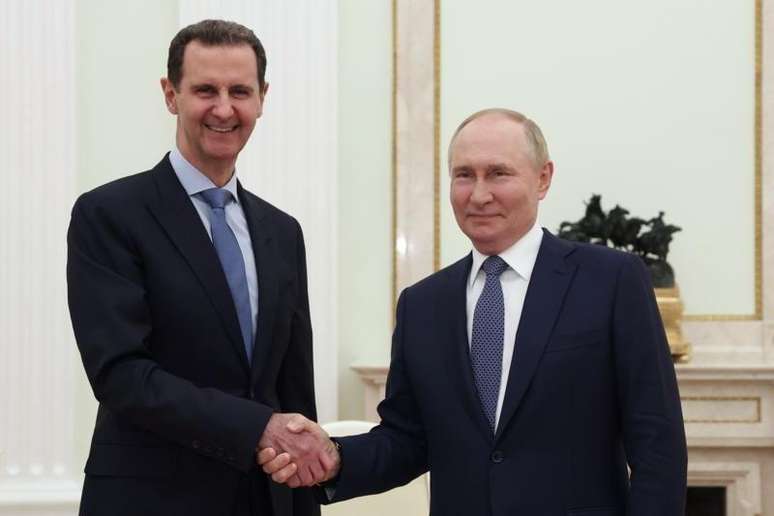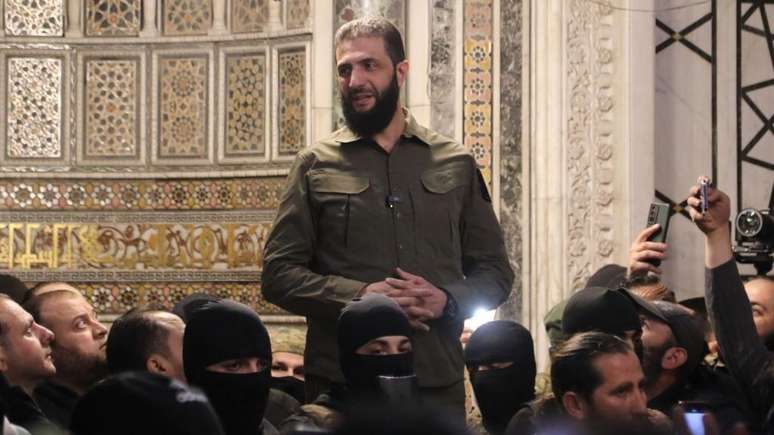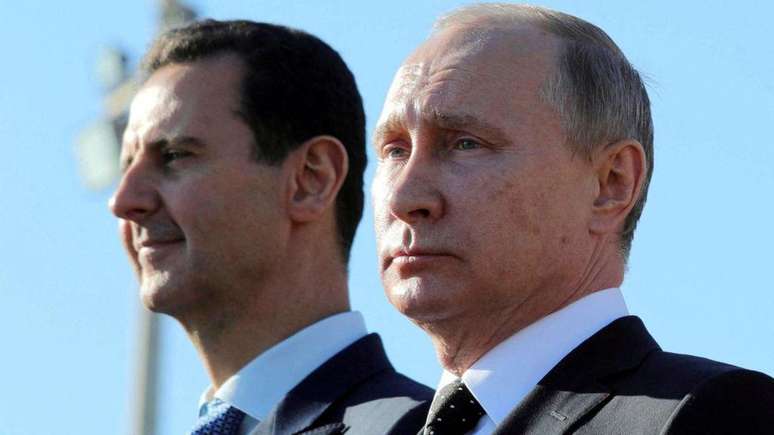For nearly a decade, it was Russian firepower that kept Bashar al-Assad in power. Until the extraordinary events of last weekend.
For nearly a decade, it was Russian firepower that kept Bashar al-Assad in power.
Until the extraordinary events of last weekend: the fall of Damascus, the Syrian president overthrown and flown to Moscow, where he sought asylum.
Citing a Kremlin source, Russian news agencies and state TV reported that Russia granted asylum to Assad and his family “on humanitarian grounds.”
In a matter of days, the Kremlin’s Syria project fell apart under the most dramatic circumstances, with Moscow powerless to stop it.
In a statement, the Russian Foreign Ministry said that Moscow is “following the dramatic events in Syria with extreme concern”.
The fall of the Assad regime is a serious blow to Russia’s prestige.
Sending thousands of troops in 2015 to support President Assad, one of Russia’s main goals was to establish itself as a global power.
It was Vladimir Putin’s first major challenge to the power and dominance of the West, far from the former Soviet space.
And successful, it seemed. In 2017, President Putin visited Russia’s Hmeimim air base in Syria and declared mission accomplished.
Despite regular reports that Russian airstrikes were causing civilian casualties, the Russian Defense Ministry felt confident enough to bring international media to Syria to witness the Russian military operation.
During one such trip, a Russian army officer told the BBC that Russia was in Syria “for the long term.”
But this was a bigger problem than just prestige.

Military bases
In exchange for military assistance, the Syrian authorities granted Russia permission to occupy the Hmeimim air base and the Tartous naval base for 49 years.
Russia had secured an important position in the eastern Mediterranean. The bases became important centers for the transfer of military personnel into and out of Africa.
A key question for Moscow: What will happen to these Russian bases now?

The Russian state TV statement announcing Assad’s arrival in Moscow also mentioned that Russian officials were in contact with representatives of the “Syrian armed opposition.”
The report states that opposition leaders have ensured the security of Russian military bases and diplomatic missions on the territory of Syria.
The Russian Foreign Ministry says bases in Syria have been placed “on high alert” but says “there is no serious threat to them at the moment.”
Bashar al Assad was Russia’s most loyal ally in the Middle East. The Kremlin has invested a lot in this. Russian officials will have a hard time hiding that their fall was a setback for Moscow.
Yet they are trying… and looking for scapegoats.
On Sunday evening, Russia’s main weekly news program targeted the Syrian army, apparently accusing it of failing to fight the rebels.
“Everyone could see that the situation was becoming more and more dramatic for the Syrian authorities,” host Yevgeny Kiselev said.
“But in Aleppo, for example, positions were given up without a fight. Fortified areas were surrendered one after another and then blown up, despite [tropas do governo] be better equipped and outnumber the attacking side many times over. It’s a mystery!”
The host said that Russia “has always hoped for reconciliation [entre lados diferentes] in Syria.”
“Of course we are not indifferent to what is happening in Syria. But our priority is Russia’s own security, what is happening in the zone of special military operations [guerra da Rússia na Ucrânia]”Kiselev said.
There is a clear message here for the Russian public.
Despite nine years of Russia pouring resources into keeping Bashar al-Assad in power, the Russians are being told they have more important things to worry about.
Source: Terra
Rose James is a Gossipify movie and series reviewer known for her in-depth analysis and unique perspective on the latest releases. With a background in film studies, she provides engaging and informative reviews, and keeps readers up to date with industry trends and emerging talents.




-soq63wa1u2jp.jpg)

